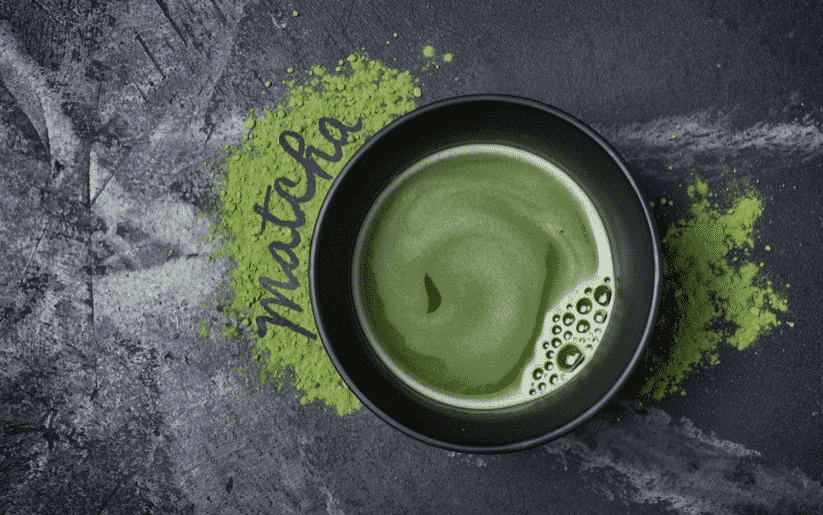I don’t know about you, but I can’t get through my day without a little caffeine. I love my coffee, but there’s no denying it can leave me feeling a bit shaky and anxious if I overdo it. And energy drinks just aren’t worth the crash. When my friends started talking about how different matcha tea energy is, plus all the amazing health benefits of green tea in general, I knew I had to try it for myself!
I discovered that matcha green tea isn’t just another name for regular green tea. Matcha green tea powder is full of special nutrients and has a delicate flavor. Matcha tea leaves are only harvested from the young tips of Camellia Sinensis plant, and it turns out they’re pretty darn special!
My Experience with Matcha Tea Energy
When I first began my journey with matcha tea, I was amazed at how different it is from coffee. The beauty of matcha tea energy is that it’s invigorating, and it doesn’t come with the crash I get from a Starbucks latte or an energy drink.
Each two-gram serving of matcha powder has as much caffeine as a shot of espresso, but I discovered that the caffeine releases gradually over several hours. This eliminates that quick jolt of energy followed by the need for a nap I expect from an afternoon coffee pick-me-up.
Whether I put matcha powder in a smoothie or make a matcha latte, I get energy without the jitters and other side effects of coffee. Not only does it keep me energized longer, but it also leaves me feeling calm and relaxed. I learned that this effect comes from the amino acid L-theanine, which provides calm, improves mental focus, and gives me a happy, steady energy boost.
It also turns out that matcha tea contains 10 times more antioxidants than regular green tea. So, it kick-starts my metabolism, lowers cholesterol, and controls blood sugar.
And, that’s just the beginning of what I learned about this powerful superfood!
5 Ways Matcha Tea Energy is Different from Coffee
1. Matcha Green Tea Boosts Metabolism
One of the most amazing benefits of matcha tea is that it can boost your metabolism. That means burns calories, supports your weight loss efforts and makes you feel more energized in general. It’s my new secret for maintaining a healthy weight without having to be at the gym constantly.
2. Matcha Tea is Loaded with Antioxidants
According to the ORAC test, matcha tea has more antioxidants than blueberries, pomegranates, or spinach. It’s amazing for purifying the body and protecting it from damage and premature aging. Getting rid of all those impurities has the added benefit of getting rid of that sluggish feeling and give you more energy all day long.
3. Matcha Tea is a Nutrient Dense Superfood
Matcha powder is incredibly versatile, and it contains tons of nutrients that have strong anti-inflammatory effects. It contains vitamin for vision, B1 to support metabolism and blood sugar, vitamin C for the immune system, and much more. I add matcha tea leaf powder to everything from lattes, yogurt, pancakes, and ice cream to smoothies. As a nutritionist, I find that it’s a great way to get extra nutrients and an energy boost without a lot of extra effort.
4. Matcha Contains Valuable Amino Acids
The amino acids in matcha green tea minimize the negative effects of the caffeine. One of its most powerful amino acids, called L-theanine, actually binds to the caffeine so it absorbs more slowly. That prevents the rapid release of cortisol and the adrenaline spike you normally get from other caffeinated drinks. Not only does it provide energy, but it also imparts a feeling of calmness and focus at the same time.
5. Matcha Tea Energy Lasts All Day
When you drink a cup of coffee, the caffeine is absorbed into your body in about 30 minutes. The effect wears off quickly, leaving you craving another cup to keep the energy and alertness flowing. But, just a single cup of matcha can keep you feeling focused, alert, and energized for most of the day because it is absorbed much more slowly.
Other Health Benefits of Matcha Tea
While matcha tea energy is truly amazing, there are some other health benefits of matcha leaves that I was thrilled to discover!
- Matcha Supports the Immune System: Matcha contains a catechin called EGCg. This powerful antioxidant helps the body defend against viruses and bacteria. It actually binds to the cells in your body and prevents the growth of illness-causing microorganisms.
- Matcha is Good for Your Heart: High-quality matcha is loaded with catechins, flavenoids, and polyphenols that reduce inflammation and are good for your heart. When accompanied by a healthy diet and exercise, it can lower your risk of heart disease and help to relieve the symptoms.
- Matcha Supports Brain Function: In a study done to measure brain performance, some participants with given matcha tea while others were given a regular cup of tea. They were asked to perform a series of cognitive tests. Those who had matcha green tea showed a better reaction time as well as improved memory and focus. Another study also showed that consuming matcha tea for two months can improve brain function in the elderly. It also stimulates alpha waves and improves your overall well-being.
- Matcha Improves Oral Health: Matcha green tea has antibacterial properties that can help to keep bad breath and cavities at bay.
How to Make a Cup of Matcha Tea
Making a cup of matcha tea at home couldn’t be easier. Always start with the purest, organic matcha tea you can find to get high levels of beneficial ingredients. Simply add 1 or 2 teaspoons of matcha powder to your cup, according to your taste. Add two ounces of hot water and stir to combine.
According to Japanese tradition, matcha powder should be whisked vigorously with a bamboo whisk to create a smooth beverage with a nice froth on top. Matcha drinkers looking for a quick fix will find that a shaker bottle or blender will also work in a pinch.
You can also find matcha green tea leaves in tea bags if that’s you’re preference. Either way, feel free to add milk or sweeteners according to your diet and preference. On its own, matcha green tea is gluten-free.

